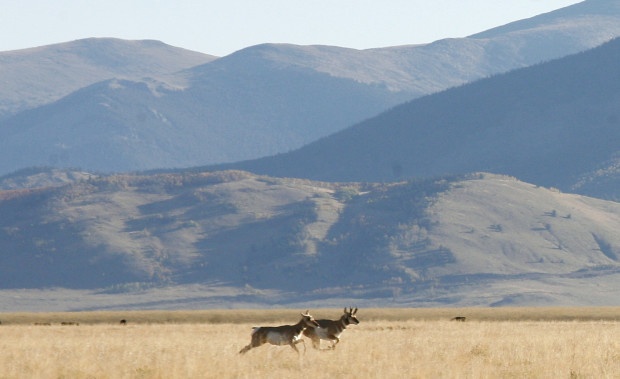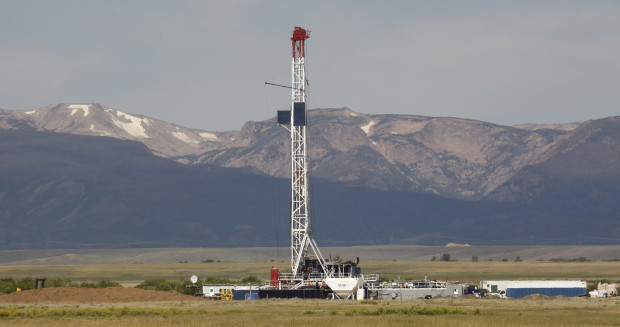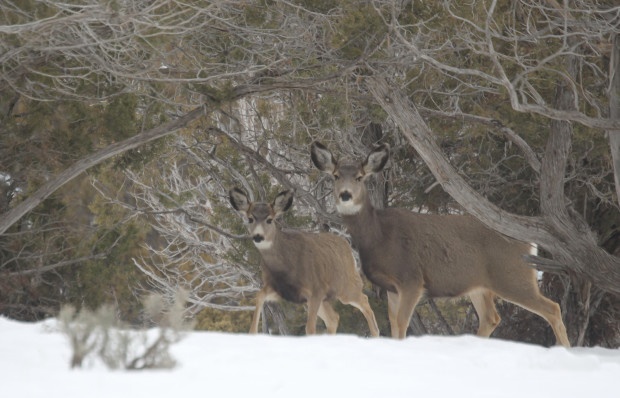We have much more to do and your continued support is needed now more than ever.
New Public Lands Policies Could Mean Better On-the-Ground Practices

So, a couple recent decisions—one at the federal level, one at a state level—are encouraging. On April 10, Interior Secretary Sally Jewell released a plan for using a science-based, landscape-scale strategy for energy production or other projects on public lands.
NWF, Trout Unlimited and the Theodore Roosevelt Conservation Partnership formed the SFRED coalition more than five years ago, brought together by concerns over oil and gas extraction that was springing up in vital fish and wildlife habitats across the West without any real thought to the impacts. Drilling rigs were sprouting up on public lands, new roads carrying 18-wheelers were carved through the backcountry, and miles of pipelines were laid along and across rivers. Mule deer habitat was cut up, sediment from well sites scraped free of vegetation was washing into fish streams and creeks, and sparsely populated parts of the Rockies were reporting record levels of smog.
First, do no harm
NWF and its partners campaigned for a big-picture approach to leasing, one that considers the potential cumulative impacts, takes a good look at what’s on the landscape, including fish and wildlife, and strives to reduce conflicts ahead of time. Jewell says her new plan’s goal is to “successfully shift from a reactive, project-by-project approach to more predictable and effective management of the lands and resources that we manage on behalf of the American public.”

The new mitigation strategy, if followed, could result in “an important and long overdue paradigm shift in how we manage our public lands,” says Kate Zimmerman, NWF’s public lands policy director. It is essential that Interior follow the proposed hierarchy—do all that it can to avoid important fish and wildlife areas in the first place.
In Colorado, the Bureau of Land Management has given direction to field offices that represents another important shift. The BLM state office says oil and gas leases won’t be offered on public lands where master leasing plans, or MLPs, are being prepared. That’s great news for places like Colorado’s South Park, one of the places that will go through the MLP process.
Good for fish, wildlife
South Park, a high-elevation valley surrounded by mountains, is the headwaters of the South Platte River and is a major source of drinking water for the Denver and beyond. It’s one of the region’s premier hunting and fishing spots, boasting many miles of Gold Medal trout streams. The BLM agreed to prepare an MLP for the area after a lot of coaxing and outreach by local governments, residents and businesses, the Colorado Wildlife Federation and other wildlife and sportsmen’s groups, including NWF, Trout Unlimited and the Theodore Roosevelt Conservation Partnership.
Master leasing plans are one of the reforms promised by the Interior Department. They’re intended as an intermediate step between BLM’s more general overall land use plans that cover millions of acres and site-level reviews of individual oil and gas wells. Prime candidates for MLPs are public lands where minerals and important fish, wildlife and other natural resources overlap. The Colorado BLM’s new policy will protect these areas while BLM takes a careful look at whether and how oil and gas development should proceed and what measures should be in place to ensure the conservation of important resources. Offering leases while an MLP is underway could undermine the entire effort.
Government leaders in Park County, which encompasses South Park, have made it clear they’re not opposed to energy development. However, they’re adamant about protecting their watershed and the wildlife-related recreation that generates at least $18 million annually for the local economy.
“The Bureau of Land Management’s decision to defer oil and gas leasing in South Park while it writes a master leasing plan shows sound decision making and also shows respect for the citizens of Park County,” said Tom Eisenman, county administrator.
The decision, as well as Interior’s new mitigation strategy, might signal the start of new respect for all the important qualities of our public lands. NWF and its partners will be watching.

Help Protect Public Lands
![]() Tell Congress to stop targeting our public lands: sign the petition!
Tell Congress to stop targeting our public lands: sign the petition!






















